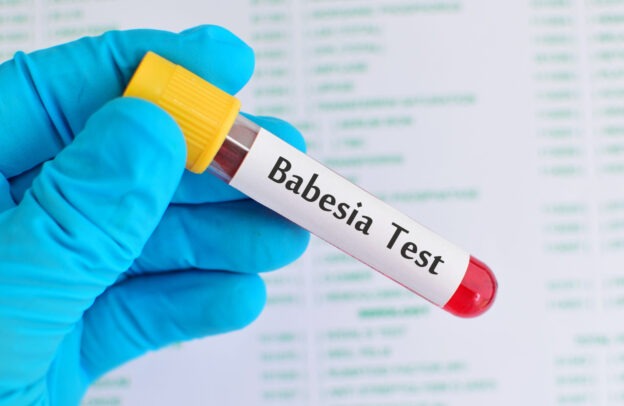Instructor
Elizabeth L. Maloney, MD
Education Co-director, Invisible International
Description
This course teaches how to diagnose and treat infections caused by babesia, a malaria-like protozoan parasite that can be transmitted through tick bites, blood transfusions, and organ transplants, or congenitally from mother to fetus. The course also discusses the global distribution of babesia and a new species of babesia, B. odocoilei, which may be causing unrecognized disease.
Learning objectives
- Describe the epidemiology of Babesiosis in the US
- Identify the signs and symptoms of Babesiosis
- Discuss the types and limitations of diagnostic testing
- Discuss treatment approaches for Babesiosis
This session, An Introduction to Human Babesiosis, is approved for 0.25 enduring AAFP Prescribed credits.
AAFP Prescribed credit is accepted by the American Medical Association as equivalent to AMA PRA Category 1 credit(s)™ toward the AMA Physician’s Recognition Award. When applying for the AMA PRA, Prescribed credit earned must be reported as Prescribed, not as Category 1.
The AAFP has reviewed One Health Medical Education for a Changing Climate and deemed it acceptable for AAFP credit. Term of approval is from 01/02/2024 to 01/01/2025. Physicians should claim only the credit commensurate with the extent of their participation in the activity.
References
Swanson M, Pickrel A, Williamson J, Montgomery S. Trends in Reported Babesiosis Cases – United States, 2011-2019. MMWR Morb Mortal Wkly Rep. 2023 Mar 17;72(11):273-277. doi: 10.15585/mmwr.mm7211a1. PMID: 36928071; PMCID: PMC10027409.
Gray EB, Herwaldt BL. Babesiosis Surveillance – United States, 2011-2015. MMWR Surveill Summ. 2019 May 31;68(6):1-11. doi: 10.15585/mmwr.ss6806a1. PMID: 31145719.
Bloch EM, Day JR, Krause PJ, Kjemtrup A, O’Brien SF, Tobian AAR, Goel R. Epidemiology of Hospitalized Patients with Babesiosis, United States, 2010-2016. Emerg Infect Dis. 2022 Feb;28(2):354–62. doi: 10.3201/eid2802.210213. PMID: 35076004; PMCID: PMC8798708.
Vannier EG, Diuk-Wasser MA, Ben Mamoun C, Krause PJ. Babesiosis. Infect Dis Clin North Am. 2015 Jun;29(2):357-70. doi: 10.1016/j.idc.2015.02.008. PMID: 25999229; PMCID: PMC4458703.
Nassar Y, Richter S. Babesiosis Presenting as Acute Liver Failure. Case Rep Gastroenterol. 2017 Dec 18;11(3):769-773. doi: 10.1159/000485373. PMID: 29430231; PMCID: PMC5803690.
Ortiz JF, Millhouse PW, Morillo Cox Á, Campoverde L, Kaur A, Wirth M, Atoot A. Babesiosis: Appreciating the Pathophysiology and Diverse Sequela of the Infection. Cureus. 2020 Oct 21;12(10):e11085. doi: 10.7759/cureus.11085. PMID: 33224678; PMCID: PMC7678756.


